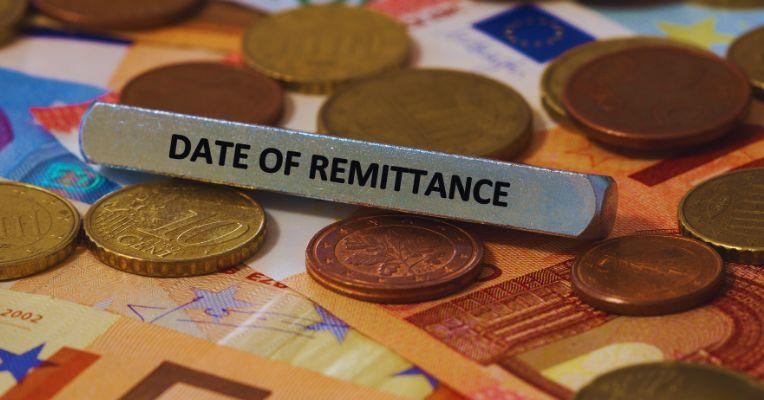Pakistan has failed to meet its tax revenue target for the first half of the fiscal year, falling short by Rs386 billion. This shortfall is a result of several challenges in the tax collection process, despite a nominal increase in revenue and efforts by the Federal Board of Revenue (FBR) to meet the target. Let’s break down the reasons for this shortfall, what the FBR has done to mitigate the situation, and the ongoing discussions with the International Monetary Fund (IMF).
The Tax Collection Shortfall
The government set a target of Rs6.009 trillion for tax collection by the end of December, but the FBR managed to collect only Rs5.623 trillion. This resulted in a shortfall of Rs386 billion. While the FBR managed to post a 26% growth in tax collection during the first half of the fiscal year, the target required a 40% growth.
| Target | Collection | Shortfall | Growth |
|---|---|---|---|
| Rs6.009 trillion | Rs5.623 trillion | Rs386 billion | 26% |
| Required Growth | 40% | N/A | 26% |
Challenges in Meeting the Target
Several factors contributed to the tax shortfall. One of the major reasons was the lower-than-expected inflation, which affected the nominal growth of tax revenues. Despite this, the FBR collected Rs1.16 trillion more than the previous year, which is significant given that the economy grew by less than 1% during the first quarter of the year. However, this was still not enough to meet the target.
| Factor | Impact |
|---|---|
| Lower-than-expected inflation | Limited nominal growth in tax revenue |
| Economic growth less than 1% | Slowed revenue generation |
| Advance tax collections | Helped to close the gap towards the target |
The Role of Advances in Tax Collection
To mitigate the shortfall, the FBR had to take substantial advances, especially for the third quarter (January-March). On the second last day of December, the FBR took Rs89 billion in advances, most of which came from Karachi. This helped the FBR close the gap slightly and collect Rs277 billion on the last day of December, an extraordinary amount for a single day. Despite this, the overall shortfall remained.
| Date | Advance Collected | Total Collection | Notes |
|---|---|---|---|
| December 30 | Rs89 billion | Rs277 billion | Large advance collection from Karachi |
| December 31 | Rs277 billion | Rs207 billion in income tax | Last day collection exceeded expectations |
Performance in Specific Tax Categories
The FBR performance varied across different types of taxes. While the income tax target was exceeded, the government missed the targets for sales tax, federal excise duty (FED), and customs duty.
- Income Tax: The FBR collected Rs2.78 trillion, which was Rs256 billion higher than the target of Rs2.524 trillion. Income tax now makes up nearly half of the total tax collection.
- Sales Tax: The target was missed by Rs179 billion, with a collection of Rs1.9 trillion, 25% higher than last year.
- Federal Excise Duty (FED): The collection was Rs347 billion, but the target was missed by Rs107 billion.
- Customs Duty: With a collection of Rs598 billion, the customs duty target was missed by Rs156 billion.
| Tax Type | Target | Collection | Shortfall |
|---|---|---|---|
| Income Tax | Rs2.524 trillion | Rs2.78 trillion | Surpassed by Rs256 billion |
| Sales Tax | Rs2.277 trillion | Rs1.9 trillion | Missed by Rs179 billion |
| Federal Excise Duty | Rs454 billion | Rs347 billion | Missed by Rs107 billion |
| Customs Duty | Rs754 billion | Rs598 billion | Missed by Rs156 billion |
Refunds and Tax-to-GDP Ratio
In spite of the shortfall, the FBR paid out a record Rs70 billion in refunds for December alone, compared to Rs38 billion last year. Over the entire first quarter, refunds amounted to Rs275 billion, a significant increase from Rs234 billion last year. The FBR also reported an increase in the tax-to-GDP ratio to 10.8%, surpassing the IMF’s target of 10.6%.
| Measure | Amount | Previous Year | Notes |
|---|---|---|---|
| Refunds Paid in December | Rs70 billion | Rs38 billion | Highest in a month |
| Refunds (Q1) | Rs275 billion | Rs234 billion | Increased by Rs41 billion |
| Tax-to-GDP Ratio | 10.8% | N/A | Surpassed IMF target of 10.6% |
IMF Reaction and Future Steps
The IMF has been closely monitoring Pakistan’s tax collection performance. It has expressed concern over the shortfall in revenue, especially in indirect taxes like sales tax, excise duty, and customs duty. Although direct tax collection has been on track, the IMF has pointed out the need for stronger performance in the other areas. The IMF is expected to ask Pakistan to implement a mini-budget or reduce its tax collection target.
| IMF Viewpoint | Action Required | Impact on Pakistan |
|---|---|---|
| Concerns over indirect taxes | Request for a mini-budget | Potential additional revenue measures |
| Direct taxes on track | N/A | Helps maintain IMF program |
Prime Minister Comments on Tax Evasion
Prime Minister Shehbaz Sharif commented last month that there is significant tax evasion, partly due to collusion between tax officials and tax evaders. He acknowledged that resolving these issues would take time but emphasized the need for reforms in the system to address the challenges in tax collection.
| Prime Minister’s Statement | Key Points |
|---|---|
| Tax evasion in collusion | Needs reform in the tax system |
| Delay in resolution | Will take time to resolve evasion |
Summary
Pakistan tax collection challenges highlight the difficulties faced by the government in achieving fiscal targets. While the FBR efforts led to a 26% growth in tax revenue, the shortfall against the IMF target remains concerning. The IMF request for a mini-budget and the ongoing issues with indirect taxes suggest that Pakistan needs to reassess its fiscal policies and tax collection strategies.





